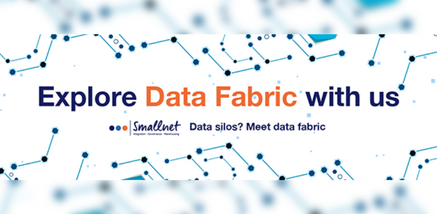What is Data Governance and what does it mean?
There are many views and opinions and what Data Governance is and what it is not and this brief blog/document is aimed at giving you some ideas and thoughts…..there are indeed many detailed books and methodologies available on the web.
So in its simplest form Data Governance (DG) is the process of managing the availability, usability, integrity and security of the data in enterprise systems, based on internal data standards and policies that also control data usage. Effective data governance ensures that data is consistent and trustworthy and doesn’t get misused.
What are the 3 key elements of good data governance?
The three critical aspects of building an effective data governance strategy are based around the PEOPLE, PROCESSES and TECHNOLOGY all playing a part in some shape or form, and without input or application will typically fail if they are not all engaged.
What are the 4 pillars or goals of data governance?
- Firstly the Data is well understood ie where does it come from and how is it made up
- Secondly is the Data accurate and complete as can be reasonably be expected ie you might not have access to all of the data lineage (often called metadata) but is still valuable.
- Thirdly is all of data compliant and can be used accordingly ie GDPR/Privacy Rules
- Finally is the Data trusted within your organisation and accepted by the business users as the valid or golden source.
The SmallNet journey with Data Governance started some 20 years when building Data Warehouses was in its infancy. We learnt quickly that building data warehouses with trusted information that users would be prepared to adopt required more than load scripts and agile data modelling.
It also needed data quality, data transparency, a common understanding of business language, and sophisticated access models.
These requirements have only recently been termed ‘Data Governance’, but as a business, we have always been being applying these disciplines to our customers’ assets and solutions. Before the advent of the latest tools ie Data Catalogs and the like we delivered Governance in documents, spreadsheets and our database models.
Analogous To Data Warehousing
- Most lessons learnt and good practice from Data Warehousing (DW) can be applied to Data Governance (DG)
- DW / BI have become integrated into Business as Usual and business processes / decision making
- DG should be thought of as the same
- This helps people understand governance is a way of working that requires continual investment and support.
Not Just For Christmas
- Don’t Treat Governance as a project,
- Data Governance is a way of working not a project
- The initial capital investment and setup of team is the beginning
- DG will require ongoing investment and continue to grow and change with the business.
- You need a strategy with a board and executive buy in.
Friends in High Places
- Executive sponsorship
- Just because the business funded the initial purchase don’t assume they have bought into a governance way of life
- Without Sponsorship there will be limited adoption
- No adoption no money
- Demonstrate tangible business value for sponsorship
What’s the Problem
- You need to be able to articulate the problems you are solving with Governance
- Identify areas of focus
- Don’t Load just what you have
-
Don’t Load what the tool does easily
- You need to be able to articulate the business problems you are solving
Show Them The Money
- Build use cases around business value
- Identify business value use cases with a business case
- Create projects to deliver specific use cases
- This approach will help business adoption
- Build top-down based on use cases
Build it and They won’t Come
- Don’t build bottom-up, Expensive and time to value extended
- The catalogue does not need to be fully complete to be of value
- Identify area focus and breakdown into subject areas
- Build through business-focused projects
- Its impossible to get support from the business and subject matter experts
Don’t Let the Tail Wag the Dog
- Don’t let your strategy be governed by the tool’s capabilities
- The tool is an enabler only
- Catalog what is needed not what is easy
- Don’t choose use cases based on what the tool does easily
- Don’t be afraid of incorporating assets that require manual effort or customisation
Get Organised
- The organisation is responsible for successful Data Governance not a Governance team.
- The Governance Team are there to curate and facilitate.
- Need Business Analysts and Subject Matter Experts skills too
- Don’t focus on just assigning data owners and stewards
- Remember its people, processes and tools
NEXT STEPS and WHERE TO START
At SmallNet we are very flexible in our engagement approach from short term tactical help to help issues or get you started to a more involved end to end pilots that help you learn while delivering something that is meaningful and useful.
However, whatever you want to do, we believe in not trying to do too much at time, so we recommend breaking down your projects into smaller chunks of easily defined and scoped deliverables. This enables you to focus on the detail, have early delivery of results and capability and manage better manage time and cost. As you do this your understanding of how and what you want to do will grow and your thoughts and approach may change, the approach enables you to adapt without major rework.
Some Examples of SmallNet Data Governance Engagements include:
- Data Lineage for financial services and Banking organisations to support regulatory compliance
- Business Glossary of terms and Policies, setup and population
- Catalog design and population and initial load from existing sources such other catalog tools, spreadsheets and word documents etc
- Process and workflow implementation
- Data Quality Platform to support the active monitoring and remediation of Data Quality failures
- Technical Architecture and solution design
- Strategy and Implementation road map, helping to build a Data Governance program
- Governance Health Checks and Readiness Assessments
So if you would like to find out more what a DATA GOVERNANCE Solutions can help your organisation please simply contact us for a free of charge introductory call, with no obligations either way. We have various supporting materials and white papers and details on how you can get started.








